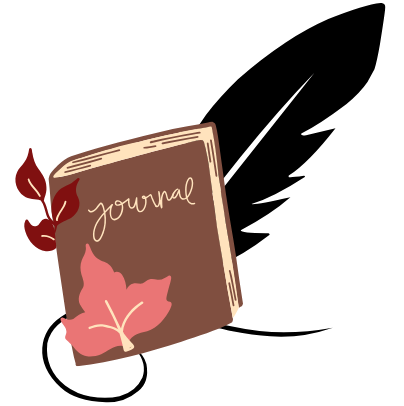As a long-time journaling enthusiast, I’ve discovered the transformative impact of incorporating inspirational quotes into my writing practice.
These carefully chosen words serve as catalysts for deep self-reflection and personal growth, enhancing the journaling experience in profound ways.
The Psychology Behind Inspirational Quotes
Our brains are wired to find patterns and meaning in concise, memorable phrases. This explains why certain quotes resonate so deeply with us.
Dr. Steven Pinker, a cognitive psychologist at Harvard University, suggests that inspirational quotes tap into our innate want for meaning and understanding.
When we encounter a quote that aligns with our values or experiences, it triggers a sense of recognition and validation.
By incorporating these powerful snippets into our journal writing, we’re essentially programming our minds with positive, motivational thoughts.
Choosing the Right Quotes for Your Journal
Selecting quotes that genuinely resonate with you is crucial for enhancing your journaling experience. Here’s how you can curate a collection of quotes that will spark genuine introspection and growth:
Reflect on Your Current Life Situation and Goals
Consider your present circumstances, challenges, and aspirations. Look for quotes that speak directly to these aspects of your life.
For example, if you’re going through a career transition, you might find inspiration in quotes about embracing change or pursuing passion.
Explore Diverse Sources
Cast a wide net when searching for inspirational quotes. Books, speeches, songs, movies, and even conversations with friends can all be rich sources of wisdom.
Don’t limit yourself to well-known figures – sometimes, the most impactful quotes come from unexpected places.
Consider the Emotional Impact
Pay attention to how each quote makes you feel. Does it evoke a sense of motivation, comfort, or challenge?
The most effective quotes for journaling often stir up strong emotions or provoke deep thought.
Look for Quotes That Challenge Your Perspective
While it’s natural to gravitate towards quotes that confirm our existing beliefs, there’s great value in exploring ideas that challenge us. These quotes can lead to significant personal growth and new insights.
Integrating Quotes into Your Journaling Practice
Now that you’ve gathered some inspiring quotes, let’s explore effective ways to incorporate them into your writing:
Quote as a Prompt
Start your journaling session by writing a quote at the top of the page. Use it as a springboard for your thoughts.
Ask yourself:
- How does this quote relate to my life right now?
- What emotions does it evoke?
- Do I agree or disagree with the sentiment? Why?
For example, if you’re working with the quote “The only way to do great work is to love what you do” by Steve Jobs, you might reflect on your current job satisfaction, career goals, or what “great work” means to you personally.
Quote Reflection
Dedicate an entire page to a single quote. Write it in the center and surround it with your reflections, interpretations, and personal experiences related to it’s message.
This visual approach can help you explore the quote’s meaning from multiple angles.
Quote of the Day
Choose a new quote each day and write about how you can embody it’s wisdom in your daily life. This practice helps you stay focused on your personal growth goals and encourages mindful living.
For instance, if your quote of the day is “Kindness is free, sprinkle that stuff everywhere” by Unknown, you might brainstorm specific ways to show kindness to others and reflect on how being kind impacts your own well-being.
Quote Comparison
Select two quotes with contrasting viewpoints on the same topic. Explore the tension between them in your writing.
This exercise develops critical thinking skills and helps you gain a more nuanced understanding of complex issues.
For example, you could compare “The early bird catches the worm” with “The second mouse gets the cheese.” This comparison might lead to reflections on the benefits and drawbacks of being first, the value of patience, or the role of timing in success.
Overcoming Common Challenges
While using inspirational quotes in journaling can be incredibly useful, it’s not without it’s pitfalls. Here are some common challenges and strategies to overcome them:
Quote Overload
Filling your journal with quote after quote without much personal reflection reduces the value of this practice. To avoid this, limit yourself to one or two quotes per journaling session.
Focus on quality over quantity, giving each quote the time and attention it deserves.
Balancing Positivity and Realism
Inspirational quotes often skew towards positivity, which can be uplifting but may not always reflect the full spectrum of human experience. Balance inspirational quotes with honest reflections on your struggles and challenges.
Acknowledge negative emotions and use quotes as tools for processing and growth as opposed to as a means of avoiding difficult feelings.
Misinterpretation
Quotes taken out of context can sometimes be misunderstood or misapplied. Do some research on the origin and intended meaning of quotes, especially if you plan to use them as guiding principles in your life. Understanding the context can deepen your appreciation and confirm you’re applying the wisdom appropriately.
Advanced Techniques for Quote-Inspired Journaling
As you become more comfortable with incorporating quotes into your journaling practice, try these advanced techniques:
Create Your Own Quotes
After reflecting on a particular theme or experience, try to distill your thoughts into a concise, quote-like format. This exercise clarifies your thinking and provides personal mantras to guide you.
For example, after journaling about overcoming a fear, you might create a quote like “Courage grows with each small step forward.”
Quote Dialogue
Imagine having a conversation with the author of a quote. Write out this dialogue in your journal, exploring different perspectives and deepening your understanding of the quote’s message.
This technique can be particularly insightful when working with quotes from historical figures or experts in fields you’re interested in.
Quote-Inspired Goal Setting
Use inspirational quotes as the foundation for setting and working towards personal goals. Write about how you can apply the quote’s wisdom to achieve specific objectives in your life.
For instance, if you’re inspired by Maya Angelou’s quote “Do the best you can until you know better. Then when you know better, do better,” you might set goals related to continuous learning and self-improvement.
The Ripple Effect of Inspirational Journaling
Consistently engaging with inspirational quotes in your journaling practice often leads to positive changes extending beyond the pages of your journal.
Many of my clients report increased self-awareness, improved emotional regulation, and a more optimistic outlook on life.
The power of inspirational quotes in journaling comes from how you engage with them. They serve as tools for self-discovery, motivation, and personal growth.
Let them challenge your assumptions, inspire new perspectives, and guide you towards becoming the best version of yourself.
Cultivating a Quote-Rich Environment
To maximize the impact of inspirational quotes on your journaling practice and daily life, consider creating a quote-rich environment:
Create a Quote Wall
Designate a space in your home or office for displaying inspirational quotes. Use a bulletin board, whiteboard, or even a dedicated wall space.
Rotate the quotes regularly to keep the inspiration fresh and aligned with your current focus areas.
Digital Quote Collection
Use apps or digital tools to curate and organize your favorite quotes. Many note-taking apps allow you to tag and categorize quotes, making it easy to find the perfect inspiration for your journaling sessions or daily reflections.
Quote-Inspired Art
Express your creativity by turning your favorite quotes into artwork. This could involve calligraphy, painting, digital design, or any other medium that resonates with you.
The process of creating quote-inspired art can deepen your connection to the words and their meaning.
Sharing the Inspiration
While journaling is often a personal practice, sharing the inspiration you find in quotes can enhance your experience and benefit others:
Quote Exchange with Friends
Start a quote exchange with friends or family members. Share a meaningful quote each week and talk about it’s impact on your lives.
This practice fosters connection and provides fresh perspectives on familiar words.
Social Media Sharing
If you’re comfortable, share your favorite quotes and brief reflections on social media platforms. This can spark interesting discussions and expose you to new quotes and interpretations from your network.
Quote-Inspired Conversations
Use inspirational quotes as conversation starters in your daily interactions. You might be surprised by the depth and insight these discussions can bring to your relationships and understanding of others.
Quotes for Different Life Stages and Situations
Different quotes resonate at various stages of life or in specific situations. Here’s a guide to finding quotes that speak to particular experiences:
Quotes for Personal Growth
Look for quotes that encourage self-reflection, challenge limiting beliefs, and inspire positive change. Authors like Brené Brown, Eckhart Tolle, and Deepak Chopra offer a wealth of wisdom in this area.
Quotes for Overcoming Adversity
In challenging times, seek out quotes that offer comfort, resilience, and perspective. Historical figures who faced significant obstacles, like Nelson Mandela or Helen Keller, often provide powerful words of encouragement.
Quotes for Career and Success
For professional inspiration, explore quotes from successful entrepreneurs, leaders, and innovators. Figures like Steve Jobs, Oprah Winfrey, and Richard Branson offer insights on ambition, perseverance, and innovation.
Quotes for Relationships and Love
When reflecting on connections with others, turn to poets, philosophers, and relationship experts. Rumi, Kahlil Gibran, and Esther Perel offer profound insights into the nature of love and human connection.
Quotes for Mindfulness and Well-being
To support practices of mindfulness and overall well-being, explore quotes from meditation teachers, psychologists, and wellness experts. Jon Kabat-Zinn, Thich Nhat Hanh, and Kristin Neff provide valuable perspectives in this area.
The Science of Quotations
Understanding the psychological and neurological impact of quotes can enhance your journaling practice:
Cognitive Processing
Quotes often use rhetorical devices like alliteration, parallelism, and metaphor. These linguistic features make quotes more memorable and impactful, engaging multiple areas of the brain in processing and retention.
Emotional Resonance
The brevity and poignancy of well-crafted quotes can trigger strong emotional responses. This emotional engagement enhances memory formation and recall, making quotes powerful tools for personal development.
Social Proof and Authority
Quotes from respected figures carry the weight of social proof and authority. This can increase our receptiveness to the ideas presented, even if they challenge our existing beliefs.
Narrative Transportation
Engaging with quotes can lead to a phenomenon known as narrative transportation, where we become mentally and emotionally immersed in the story or concept presented. This immersion can facilitate deeper reflection and personal insight.
Ethical Considerations in Quote Usage
As you incorporate quotes into your journaling practice, it’s important to consider ethical aspects:
Attribution
Always attribute quotes correctly to their original authors. Misattribution is common, especially on the internet, so take the time to verify sources.
Context
Be mindful of the original context of quotes. Avoid using quotes in ways that misrepresent the author’s intended meaning or message.
Cultural Sensitivity
When using quotes from cultures or traditions different from your own, approach them with respect and an openness to learning. Be cautious about appropriating or misinterpreting cultural wisdom.
Personal Responsibility
While quotes can be powerful sources of inspiration, remember that personal growth ultimately comes from your own actions and reflections. Use quotes as tools for insight, not as substitutes for critical thinking or personal responsibility.
Integrating Quotes with Other Journaling Techniques
Inspirational quotes can complement and enhance other journaling techniques:
Gratitude Journaling
Use quotes about appreciation and thankfulness to deepen your gratitude practice. Reflect on how the quote’s message relates to specific things you’re grateful for in your life.
Dream Journaling
Incorporate quotes about imagination, the subconscious, or personal symbolism to enrich your reflections on your dreams and their potential meanings.
Goal-Setting and Progress Tracking
Use motivational quotes to reinforce your commitment to your goals. Revisit these quotes when tracking your progress to maintain inspiration and overcome obstacles.
Emotional Processing
When working through difficult emotions, find quotes that validate your feelings while offering perspective or hope. Use these as starting points for exploring and processing your emotional experiences.
Creative Writing
Let quotes inspire creative writing exercises in your journal. Use them as prompts for short stories, poems, or stream-of-consciousness writing.
The Evolution of Your Quote Collection
As you continue your quote-inspired journaling practice, you’ll likely notice your collection of meaningful quotes evolving:
Changing Resonance
Quotes that once deeply moved you might lose their impact over time, while others gain new significance. This shift reflects your personal growth and changing life circumstances.
Deepening Understanding
Returning to familiar quotes after time away often reveals new layers of meaning. Your life experiences provide fresh context for interpreting and applying their wisdom.
Personal Canon
Over time, you’ll develop a personal canon of quotes that hold special significance for you. These become touchstones in your personal development journey, offering guidance and inspiration across various life situations.
Cross-Pollination of Ideas
As your quote collection grows, you might start noticing connections between different quotes, authors, and ideas. This cross-pollination can lead to unique insights and a more nuanced worldview.
Quotes as Bridges to Literature and Philosophy
Inspirational quotes often serve as entry points to deeper exploration of literature, philosophy, and other fields of study:
From Quote to Book
When a quote particularly resonates with you, consider reading the full work it came from. This can provide valuable context and expose you to more ideas from the author.
Philosophical Exploration
Quotes from philosophers can spark interest in exploring different schools of thought. Use your journal to reflect on how these philosophical ideas apply to your life and worldview.
Literary Analysis
Quotes from literature can inspire closer reading and analysis of the works they come from. Use your journal to explore themes, characters, and writing techniques that the quotes highlight.
Historical Context
Quotes from historical figures can lead to deeper understanding of the times and circumstances in which they lived. Research and reflect on the historical context to enrich your interpretation of the quote.
The Role of Quotes in Personal Storytelling
Inspirational quotes can play a significant role in shaping and expressing your personal narrative:
Milestones and Transitions
Use quotes to mark important life transitions or milestones in your journal. Reflect on how the quote captures the essence of your experience or the lessons learned.
Personal Mantras
As you encounter quotes that deeply resonate with your values and aspirations, they can become personal mantras. Use your journal to explore how these mantras guide your decisions and actions.
Legacy and Values
Consider which quotes you would want to pass on to future generations. Use your journal to reflect on the values and wisdom embodied in these quotes and how they represent your personal legacy.
Reframing Experiences
Quotes can offer new perspectives on past experiences. Use them as tools for reframing difficult memories or celebrating personal triumphs in your journal entries.
Quotes in the Digital Age
The digital era has transformed how we uncover, share, and engage with inspirational quotes:
Social Media and Quotes
Platforms like Instagram and Pinterest have become hubs for quote sharing. While this can be a great source of inspiration, be mindful of the potential for oversimplification or decontextualization of complex ideas.
Quote Verification
With the ease of sharing quotes online, misattributions and fabrications are common. Develop a habit of verifying quotes and their sources before incorporating them into your journaling practice.
Digital Journaling Tools
Many digital journaling apps now include features for easily incorporating and organizing quotes. Explore these tools to enhance your quote-inspired journaling practice.
Personalized Quote Recommendations
Some apps and websites use algorithms to suggest quotes based on your interests and previous selections. While these can be helpful, balance them with your own discoveries to maintain a diverse and personally meaningful collection.
The Future of Quote-Inspired Journaling
As technology and our understanding of personal development evolve, so too will the practice of quote-inspired journaling:
AI-Generated Insights
Future journaling tools might use artificial intelligence to analyze your quote selections and journal entries, offering personalized insights and suggestions for further exploration.
Virtual Reality Experiences
Imagine immersive virtual reality experiences built around powerful quotes, allowing you to explore their meanings in new and profound ways.
Global Quote Exchange
Online platforms could facilitate global exchanges of quotes and reflections, fostering cross-cultural understanding and shared wisdom.
Neurofeedback Integration
Advanced journaling practices might incorporate neurofeedback technology, helping you identify which quotes and reflections have the most significant impact on your brain and emotional state.
Key Takeaways
- Choose quotes that genuinely resonate with your current life situation and goals.
- Use quotes as prompts for deeper self-reflection and personal growth.
- Experiment with different techniques to keep your quote-inspired journaling practice fresh and engaging.
- Create your own quotes to distill personal insights and wisdom.
- Use quote-inspired journaling as a tool for goal-setting, emotional processing, and creative expression.
- Be mindful of the ethical considerations in quote usage, including proper attribution and cultural sensitivity.
- Allow your collection of meaningful quotes to evolve, reflecting your personal growth and changing perspectives.
- Use quotes as bridges to explore literature, philosophy, and historical contexts.
- Embrace digital tools for discovering and organizing quotes, but maintain a critical eye for verification and personal relevance.
- Stay open to new developments in quote-inspired journaling, including potential technological advancements that could enhance the practice.
People Also Asked
How do I start a quote journal?
Begin by selecting a notebook or digital platform you enjoy using. Set aside time each day to write down quotes that inspire you, along with your reflections on their meaning and relevance to your life.
Where can I find good quotes for journaling?
Look for quotes in books, speeches, podcasts, movies, and reputable quote websites. Social media platforms like Instagram and Pinterest can also be good sources, but always verify the attribution.
Can journaling with quotes improve mental health?
Many people find that reflecting on inspirational quotes through journaling can boost mood, increase self-awareness, and provide perspective on life challenges, potentially contributing to improved mental health.
How often should I write in my quote journal?
The frequency depends on your personal preferences and schedule. Some people write daily, while others prefer weekly reflections.
Consistency is more important than frequency.
What’s the best way to remember quotes I want to use in my journal?
Use a note-taking app on your phone to quickly jot down quotes you encounter throughout the day. You can also bookmark quote websites or use physical quote cards to keep inspiration handy.
Are there any apps specifically for quote journaling?
Yes, several apps mix journaling features with quote libraries. Some popular options include Day One, Reflectly, and Quotebook.
Explore different apps to find one that suits your needs.
How can I use quotes to set and achieve goals?
Choose quotes that align with your goals and write them at the top of your goal-setting pages. Reflect on how the quote’s message can guide your actions and mindset towards accessing your goals.
Can journaling with quotes help with writer’s block?
Absolutely. Using quotes as writing prompts can spark creativity and provide new perspectives, helping to overcome writer’s block in both personal and professional writing.
Is it okay to disagree with a quote in my journal?
Yes, disagreeing with a quote can lead to valuable insights. Use your journal to explore why you disagree and what that reveals about your own beliefs and values.
How can I incorporate quotes into my gratitude journaling practice?
Select quotes about appreciation and thankfulness. Use these as prompts to reflect on specific things you’re grateful for, deepening your gratitude practice.




